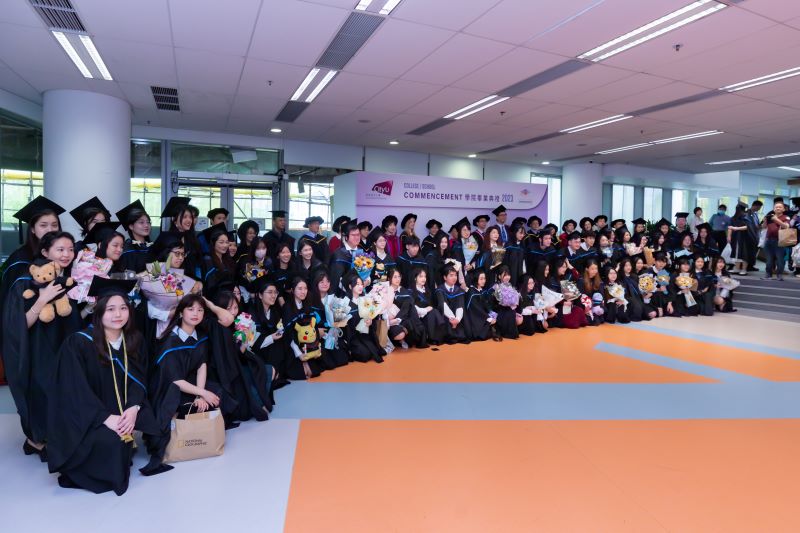BA Chinese and History

1103 (JS1103)
Local Places:
45 (For First Year and Advanced Standing I Entries)*
Non-Local Places
(For Overall Direct Applications):
Around 300
+852 3442 2054
+852 3442 0508
* for JUPAS and non-JUPAS admissions
Founded in 2014 with a view to establishing excellent tertiary education, world-class research and an international reputation in Hong Kong, the Department of Chinese and History offers the major in Chinese and History with two streams – a) Chinese & b) History and Cultural Heritage. It aims to equip students with advanced and professional knowledge and a wide range of analytical and writing skills.
The Chinese Stream strives to provide students with a solid and comprehensive training in Chinese language, Chinese literature, history and philosophy. The knowledge is both ancient and modern, and can be widely used in daily life. The training equips students with both in-depth knowledge and research skills for further academic work as well as for career development in the education, public affairs, administration, literature studies, media, editing and creative industries involving the use of Chinese. The Chinese Stream consists of four specialized areas of study, which are (1) Chinese language and literature, (2) Classical and modern Chinese literature, (3) Chinese classics and philosophy, and (4) Language use and writing.
History and Cultural Heritage Stream equips the students with comprehensive and in-depth knowledge of history, particularly Chinese history knowledge. It also aims to provide the students with the necessary training as cultural professionals with historical background. History seeks to provide the student knowledge on past events, memories, collections, and interpretations of the past. It also trains the students to examine the cause-and-effect relationships in human affairs and addresses the complexity of the past in shaping contemporary society. Although Chinese history is the primary focus of the stream, it also offers the students courses related to world history and public history to acquire historical knowledge to understand other nations’ different histories and cultures.
History as a discipline is in their very process to synthesize other fields of social sciences, including anthropology, sociology, and economics, not to mention cultural history, to which Cultural Heritage belongs. Without a relatively systematic knowledge of History, it is difficult for a student to master the knowledge of Cultural Heritage well. On the other hand, locating Cultural Heritage within and with History, Cultural Heritage can provide a cultural perspective for students of History in return. This stream is designed based on these two inseparable and interactive parts of “History” and “Cultural Heritage”.
History and Cultural Heritage Stream provides the professional training necessary to nurture high caliber history-related professionals with cultural perspective and cultural professionals with historical knowledge. It meets the growing workforce needs resulting from the rapidly expanding capacity in history-related industries including education, libraries, publishing, mass-media, etc., and culture-and-heritage-related industries, including cultural tourism, museum management, exhibition industries, commercial galleries and archives, community heritage programs, entertainment and arts-related professions, cultural and creative industries, in the Greater Bay Area, particularly Hong Kong. It educates students to become historical and cultural professionals who are culturally literate and competent in managing and marketing culture and heritage, with extensive knowledge of Chinese history and Chinese cultural heritage, including knowledge of Hong Kong’s history and cultural heritage. It also educates the students to understand Hong Kong’s unique position in integrating the East and West cultures. For this goal, this stream also strives to educate the students to become cultural professionals with highly proficient English-language ability to promote one’s culture and heritage and understand and respect the historical and cultural differences of other nations. Last but not least, History and Cultural Heritage Stream promotes professionalism in History and Culture and Heritage in support of maintaining Hong Kong’s leading role in culture- and heritage-related professions and provides expert advice on the promotion of culture and the protection and preservation of heritage in the context of Hong Kong both as part of China and as an international city.
Students who choose to major in Chinese and History will enjoy the significant advantages of integrating the two streams and our interdisciplinary emphasis, and may go on to pursue a wide range of careers after graduation.
課程重視基礎知識及實用技巧的訓練。學生修畢第一年指定科目後,可按興趣與能力在第二年選讀一個專修:「中文」或「歷史及文化遺產」。各專修所涵蓋的課題廣泛,旨在拓展學生的跨文化視野,加強其批判思考及獨立研究的能力。「中文」專修透過分析文學、思想與語言的演變,深化學生對中國語文及社會文化的認識;「歷史及文化遺產」專修強調經世致用、著重對史料的掌握與應用,並教授有關文化理論、文物保護、博物館研究的知識。
JUPAS Entrance Requirements
| JS1103 BA Chinese and History | |
| HKDSE Subject | Minimum Level Required |
| English Language | Level 3 |
| Chinese Language | Level 3 |
| Mathematics | Level 2 |
| Citizenship and Social Development | Attained |
| Elective 1 | Level 3 |
| Elective 2 | Level 3 |
Notes:
- Besides Category A elective subjects, Mathematics extended modules (M1/M2) and “other languages” (at grade E or above) can also be used to meet the elective requirement. If students take both M1 and M2, they are counted as one subject only.
- Applied Learning subjects are not counted as elective subjects.
- For details of the alternative Chinese Language qualifications acceptable by the University for Non-Chinese Speaking (NCS) students, please click here.
To be considered for admission, you must satisfy the General Entrance Requirements.
As this is a programme focusing on Chinese, Chinese history, and cultural heritage of China, successful applicants are expected to be proficient in Chinese. Applicants should provide recognized qualifications to prove their proficiency in Chinese for the Department's consideration.
During their first year of study, students will have to take a wide range of College-required courses, Gateway Education (GE) courses, and Foundation-year Courses under the major. They can also take courses in the streams so as to have a basic understanding of each discipline.
To find more details about the Programme Curriculum, please refer to the Programme Structure.